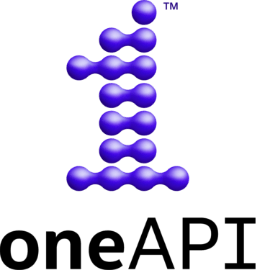Adopting oneAPI Into the NAMD Molecular Dynamics Application
Molecular dynamics (MD) is an important computational methodology that can provide insight into the structure and function of sub-cellular assemblies of biomolecules at atomic level detail, accessing spatial and temporal resolutions that are not available to purely experimental approaches. As computational power has increased over the past several years, MD techniques have become an invaluable tool for tackling biomedically relevant challenges, such as improving our understanding of the molecular structure of the SARS-CoV-2 virus that causes COVID-19 and guiding computational approaches for screening candidate compounds as potential anti-viral drugs. NAMD is a parallel MD code designed for high-performance simulation of large biomolecular systems. It offers scalable performance on petascale class computers and has now for over ten years been a major application for the NSF supercomputing centers and for various DOE labs. One of the first exascale class computers will be the upcoming Aurora supercomputer based on the latest Intel GPU technology, making the adoption of oneAPI into NAMD critical for performance. In this presentation, we will discuss the ongoing NAMD development efforts of porting its many CUDA kernels to DPC++ with the Intel DPC++ Compatibility Tool and using the Intel® VTune™ Profiler to improve GPU utilization and overall performance of the new DPC++ kernels.
Watch Now Download Presentation


